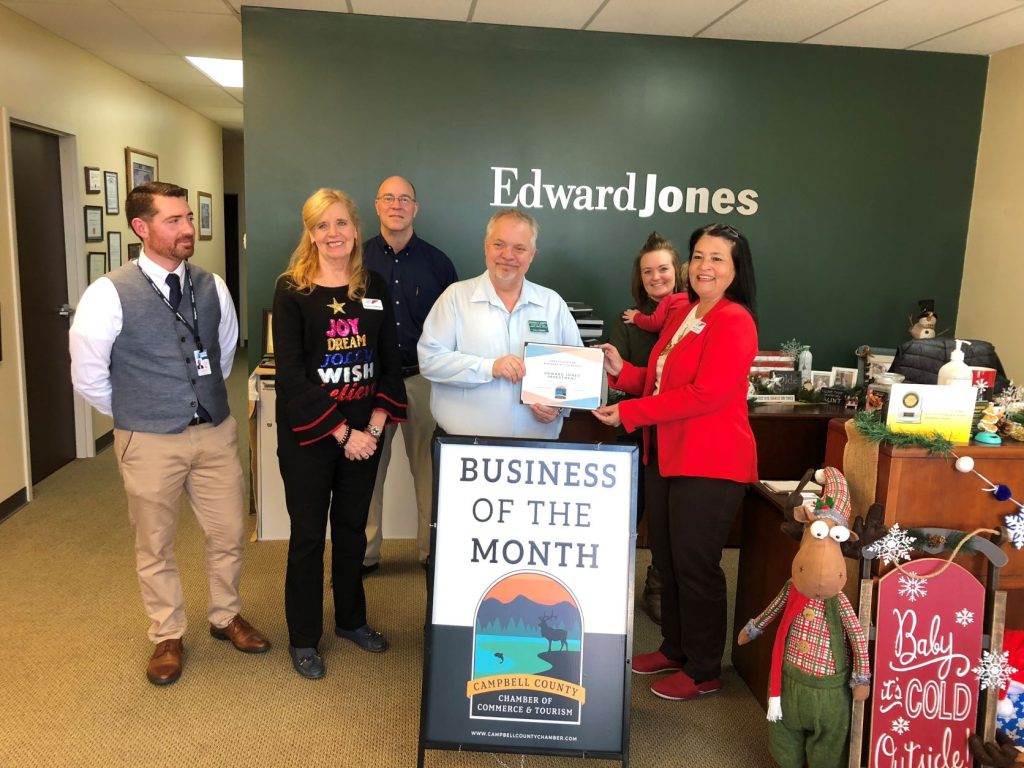LAFOLLETTE, TN (SPECIAL TO WLAF) – Local Edward Jones Financial Advisor Zach Sheets has a question for you. What should you do with a tax refund?
Are you expecting a tax refund this year? If so, what will you do with it?

Of course, the answer largely depends on the size of your refund. For the 2020 tax year, the average refund was about $2,800, according to the Internal Revenue Service. But whether your refund this year will be about that size, smaller or larger, you can find ways to benefit from the money.
Here are some possibilities:
- Contribute to your IRA. You’ve got until April 18 to fully fund your IRA for the 2021 tax year. But if you’ve already reached the maximum for 2021, you could use some, or all, of your refund for your 2022 contribution. Assuming you did get around $2,800, you’d be almost halfway to the $6,000 annual contribution limit. (If you’re 50 or older, you can contribute up to $7,000.)
- Invest in a 529 plan. If you have children or grandchildren, you might want to invest your refund in a 529 education savings plan. A 529 plan’s earnings can grow federal income-tax free, and withdrawals are federal income-tax free provided the money is used for qualified education expenses. If you invest in your own state’s plan, you might get a tax deduction or credit. A 529 plan can be used to pay for college, vocational training and even some K-12 expenses in some states. Plus, if you name one child as a beneficiary, and that child’s educational journey does not require the funds from a 529 plan, you may change the beneficiary to another eligible family member of the original beneficiary.
- Add to the “cash” part of your portfolio. It’s generally a smart move to keep at least a portion of your overall investment portfolio in cash or cash equivalents, because the presence of cash can help you in two ways. First, since its value won’t change, it can help cushion, at least to a degree, the effects of market volatility on your portfolio. And second, by having cash available, you’ll be ready to take advantage of attractive investment opportunities when they arise.
- Boost your emergency fund. You could use your tax refund to start or supplement an emergency fund. Ideally, this fund should contain three to six months’ worth of living expenses, with the money kept in a liquid, low-risk account. (If you’re already retired, you might need this fund to cover a full year’s worth of expenses.) Without such a fund, you might be forced to dip into long-term investments to pay for costly housing or auto repairs or large medical bills.
- Reduce your debt load. It’s not always easy to minimize your debt load, even if you’re careful about your spending habits. But the lower your debt payments, the more money you’ll have available to invest for your future. So, you may want to consider using some of your tax refund to pay off some debts, or at least reduce them, starting with those that carry the highest interest rates.
- Donate to charity. You could use part of your refund to donate to a charitable organization whose work you support. And if you itemize on your tax return, part of your gift may be deductible.
A tax refund is always nice to receive – and it’s even better when you put the money to good use.
Edward Jones, Member SIPC
Zach Sheets can be reached at:
Phone numbers:
423-566-4010 Office
865-242-6208 Cell
Email: zach.sheets@edwardjones.com or send us a secure message if you have Online Access
Sheets said, “If you have any questions or concerns, please do not hesitate to contact
me. Thank you for the opportunity to serve you.” (WLAF NEWS PUBLISHED – 01/25/2022-6AM)

.jpg)